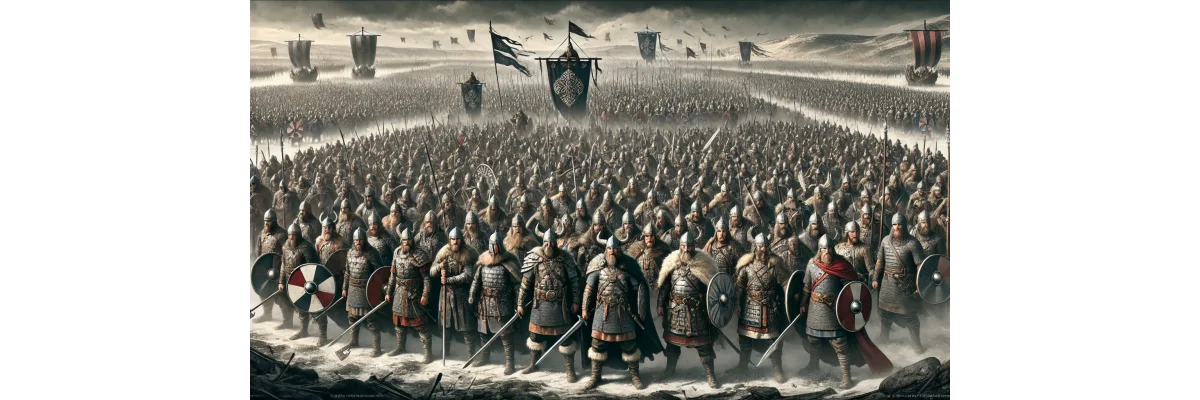Boudicca: The Warrior Queen and Her Fight Against the Roman Empire
Boudicca, the legendary queen of the Iceni tribe, remains one of the most well-known and admired women in ancient history. Her story is marked by courage, rebellion, and a passionate determination to defend her people against the mighty Roman Empire. Boudicca’s resistance to the Romans is a significant chapter in the history of the Celtic peoples and an example of unwavering determination in the fight against oppression.
The Origins of Boudicca
Boudicca was likely born around 30 AD in what is now Great Britain and grew up during a time when the Roman Empire was expanding into Britain. The Iceni tribe lived in what is now East Anglia, and Boudicca was the daughter of an influential tribal leader.
She married Prasutagus, the king of the Iceni, who entered into an alliance with the Romans. To preserve his people’s autonomy, Prasutagus made the Romans co-heirs of his kingdom in his will. However, after his death, the Romans ignored his wishes and claimed the entire kingdom of the Iceni.
The Spark for Rebellion
After the death of Prasutagus, Boudicca and her daughters were brutally mistreated by the Romans. Boudicca was publicly flogged, and her daughters were raped. This was the tipping point that drove Boudicca to revolt against Roman occupation. This humiliation and the abuse of her people were the sparks that ignited her rebellion.
Boudicca gathered the Celtic tribes of the region and led a united force against Roman rule. Her uprising was supported not only by the Iceni but also by other Celtic tribes who suffered under Roman rule.
The Battle Against the Romans
Boudicca’s resistance reached its peak when she attacked Roman colonies in the province of Britannia. Initially, she experienced great success: her army destroyed the Roman cities of Londinium (modern-day London), Verulamium (St. Albans), and Camulodunum (Colchester). These cities were Roman military strongholds and symbols of Roman domination in Britain.
Boudicca led her forces with exceptional determination and tactics. Her army, composed of warriors from the Iceni and other Celtic tribes, outnumbered the Roman troops. In the devastated cities, the Romans left a trail of destruction, further fueling Boudicca’s uprising.
However, as successful as the rebellion was, it soon reached its limits. Despite the initial successes, the Roman military was well-organized and tactically superior. Roman general Gnaeus Suetonius Paulinus led his forces to a decisive victory. In the final battle, somewhere near modern-day Norfolk, Boudicca and her forces were defeated.
The Death of Boudicca
After the defeat in the final battle, where the Romans exploited their military superiority, Boudicca remained not only as a military leader in the memory of her people but also as a symbol of resistance. There are different accounts of her death. Some sources claim that she poisoned herself to avoid capture and Roman punishment. Others say that she stood as a symbol of resistance until her last moments, choosing death and becoming part of history’s struggle.
The Legacy of Boudicca
Although Boudicca’s revolt against the Roman Empire ultimately failed, her legacy as a symbol of resistance against oppression and the power of women in history remains unforgettable. Boudicca embodied the determination and courage to rise up against an overpowering enemy, even when the odds were stacked against her. She is still celebrated today in Britain and beyond as a symbol of resistance, freedom, and the fight for justice.
In 2009, a statue of Boudicca was erected in London, depicting her on a chariot, leading her warriors into battle. This statue serves as a reminder of the significance of her revolt and her place in the history of resistance against imperialistic oppression.
Conclusion
Boudicca remains one of the strongest and most influential figures in British history. Her uprising against the Roman Empire is a fascinating example of the resistance and determination of a people fighting against an overpowering colonial power. Her story reminds us of the value of courage, strength, and the willingness to fight for freedom. Even today, Boudicca is celebrated as one of the greatest heroines of British history.


 German
German














